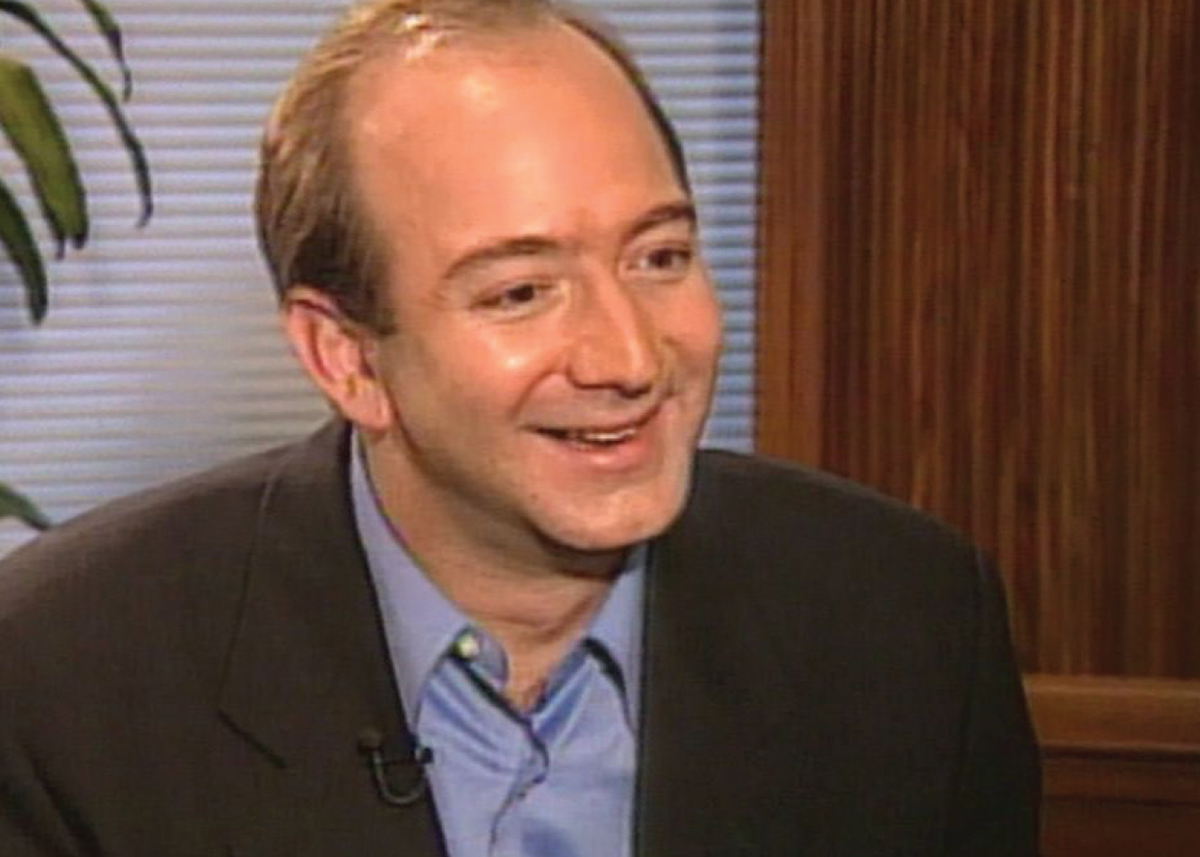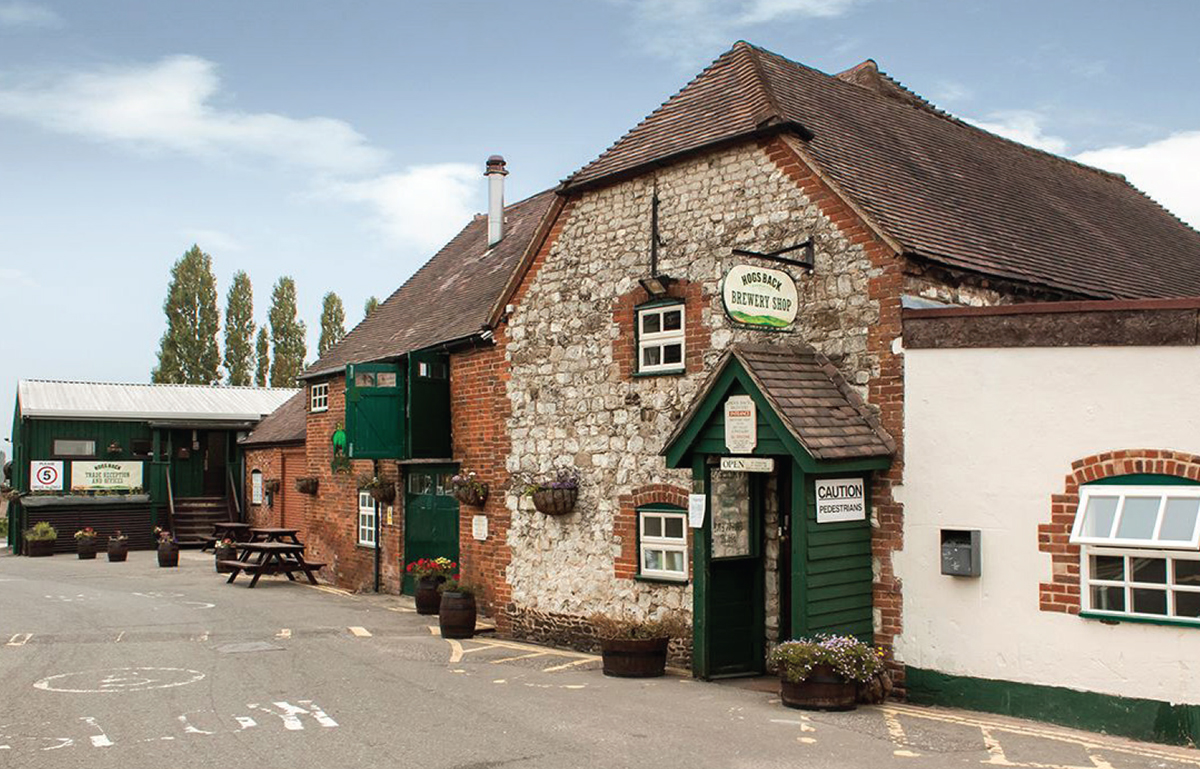
In late 1993, Jeff Bezos left his lucrative job at hedge fund manager, D. E. Shaw to create a digital bookstore. He drove with his wife from New York City to a rented house in Seattle and wrote the business plan in the car in transit. At first, he wanted to name the company Cadabra. But fortunately he dropped this idea and instead decided on Amazon.
By Maarten Hoffmann
There he started the business in his garage, packing boxes of books on his knees on a concrete floor and the question he was asked most frequently at the time was “what’s the internet?”
Along his journey in building the company, there were many doubters about the viability of the operation. Year after year, the losses just got bigger and bigger. Yet Bezos had a long-term vision and kept moving forward. Of course, now the company is one of the most valuable in the world and continues to grow like a startup. So given that he has decided to step down as CEO, this seems like a good time to reflect on his insights and wisdom.
Jeff Bezos has taught a generation of founders to always think like it is day one–never stop inventing. Looking at Amazon as the behemoth that it is today, it’s easy to forget that the company has become “The Everything Store” only because Bezos made crazy bets, including successful ones like AWS, and failures like the Fire Phone.
Additionally, he taught us that working backwards from a customer need is core to being a great entrepreneur. Obsessing over earning and keeping customer trust ensures your company doesn’t sacrifice long-term value for short-term results.
Bezos noted in his departure letter to employees on February 9th, that his chosen successor, Andy Jassy had worked at the company almost as long as he has. When Jassy joined in 1997, three years after its founding, Amazon was a fledgling online bookseller with fewer than 300 employees and $32 million in sales. Jassy takes over as CEO of Amazon and Bezos can be confident that Jassy has internalised the company’s core values. After all, Bezos has been consistently communicating Amazon’s four core principles since the day the company launched in 1995.
A successful company has a strong corporate culture. Effective leaders like Bezos communicate the values that make up that culture each and every day.
Amazon executives, Bill Carr and Colin Bryar, co-authors of the new book Working Backwards, recently spoke with the media. Carr and Bryar have spent a combined 27 years at the company. Bryar was a member of Amazon’s senior leadership team and spent two years as Bezos’s Chief of Staff—his ‘shadow’ for nine hours a day. As vice president of Digital Media, Carr helped launch Amazon Music, Prime Video, and Amazon Studios. They say that the secret sauce that makes up Amazon’s culture is made up of four ingredients: customer obsession, long-term thinking, eagerness to invent, and taking pride in operational excellence.
“Amazon has never wavered in its commitment to these four core principles,” according to Carr and Bryar. “And they are in large part the reason that in 2015 Amazon became the company that reached $100 billion in annual sales faster than any other in the world.”
1 Customer obsession
Bezos doesn’t just tell employees to pay attention to the customer; he reminds them to obsess over them. And he’s been doing so since his first shareholder letter in 1997.
“A lot of companies talk about being customer-centric. It’s easy to say but hard to do,” says Carr.
Obsessing over customers is difficult for many organisations because leaders, managers, and employees rarely hear from customers directly. They hear from their peers and partners, who all have their own needs and goals. But a great company is built by a leader who keeps the customer front and centre. They remind teams to start with the customer’s needs and ‘work backwards.’
Bezos reminds Amazonians to pay attention to competitors, but to obsess over customers.
2 Long-term thinking
Bezos has consistently articulated that one of Amazon’s core values is to think longer-term than most companies.
Carr says that Amazon Prime Video, which has more than 100 million viewers, was the result of a decade of research, development, and content acquisition.
“Having that long time horizon is critical if you want to build something big and enduring.” Carr says.
Many companies will give up on an idea if it doesn’t produce returns in a quarter or a year, but “Amazon will stick with an initiative for five, six, seven years—all the while keeping the investment manageable, constantly learning and improving – until it gains momentum and acceptance.”
3 Eagerness to invent
According to Carr, taking risks means accepting that ideas or projects will fail. But not all organisations cultivate a culture where it’s okay to try and fail.
“You have to take pro-active steps to create a culture where people don’t have that fear to fail,” says Carr. A pioneering mentality doesn’t just happen within an organisation. A leader has to inspire a team to strive to accomplish something different and unique.
4 Pride in operational excellence
In his 1998 letter, Bezos defined operational excellence as a core company value. According to Bezos, “operational excellence implies two things. Delivering continuous improvement in customer experience and driving productivity, margin, efficiency, and asset velocity across all our businesses.”
In a 2018 interview, Bezos was still reminding employees that the company values excellence in the behind-the-scenes efforts that most consumers will never see—but they’ll see the results like on-time delivery.
“People will never see 90% of what you do,” Bezos said. “The only thing that makes you have high standards on that work that nobody ever sees is your own professional pride in operational excellence.”
“Do not assume that simply stating your values and displaying them will have any significant effect,” says Carr.
At Amazon, the four pillars of the company’s corporate culture are built into every process and discussion. And it all starts at the top.
Every company has a different set of ingredients that make up its secret sauce, but those values mean little if your teams fail to internalise them. Keep your company’s values front and centre.
As for the new boss, Jassy is a Harvard Business School grad who helped come up with the idea for its cloud computing business, Amazon Web Services, and then spent 14 years turning it into the company’s biggest moneymaker, with a client roster that includes Netflix, Zoom and ESPN. The division did $45 billion in sales in 2020, up 30% from the previous year. It is far more profitable than the larger retail business, bringing in nearly 60% of Amazon’s operating income.
For his efforts, Jassy is nicely compensated, receiving $349,000 in 2019 and a security detail. But, relatively speaking, he’s received few shares in Amazon. The incoming CEO currently has just 81,500 shares, worth about $275 million. He has another $162 million in estimated cash and investments, from selling shares over the years, which gives him a net worth of nearly $440 million.
Enough for a comfortable lifestyle but it goes to show how hard it is to build wealth as a hired hand, even at one of the most successful companies on the planet, which boasts a market cap of $1.69 trillion. Jeff Bezos has maintained a tight grip on the company’s ownership since the early days, holding a roughly 42% stake when he took the company public in 1997.
Even after handing a quarter of his stock to his ex-wife MacKenzie in a divorce settlement and selling chunks of stock to chase other interests (i.e. funding his space venture Blue Origin, buying the Washington Post), he still has 53 million shares, or 11% of the company. That makes him the richest man on the planet, with a fortune of $195 billion.
None of Bezos’ other top lieutenants have become rich — at least billionaire rich — off the stock either. Take Jeff Wilke, Amazon’s consumer chief who started over two decades ago and was long considered the second-most important person at the company. He is worth around $400 million, based on roughly 49,000 shares and an estimated $245 million in cash from selling stock. Wilke announced last year that he would be leaving the company in early 2021.
“I don’t have a new job, and am as happy with and proud of Amazon as ever,” Wilke said in an email to employees. “We worked hard. And we had a blast. So why leave? It’s just time...Time for me to take time to explore personal interests that have taken a back seat for over two decades.
Jeff Blackburn is another top executive with relatively few shares. He joined the company in 1998, after helping take it public the year before. He became part of Bezos’ “S-Team,” an inner circle of advisors, in 2006, and has led a number of businesses, including Prime Video, Amazon Studios, Amazon Music and Amazon Advertising. He is worth $345 million, based on about 67,000 shares and an estimated $118 million in cash from selling stock. Blackburn, likely also looking for a break from the intense workload, took a one-year sabbatical last year.
The only other person known to have cracked into the billionaire club thanks to Amazon’s fast-rising stock is family: Namely, ex-wife MacKenzie. The two married in 1993, a year before Bezos started selling books out of his garage. In a divorce settlement in 2019, she received 19.7 million shares, making her the third-richest woman in the world behind L’Oreal heir Francoise Bettencourt Meyers and Walmart heir Alice Walton.
Of course, not all tech company founders keep so much of the shares to themselves. Facebook has minted numerous billionaires including not just its three founders but also a few hired hands like COO Sheryl Sandberg and former vice president Jeff Rothschild. Eric Schmidt, who was tapped as Google’s first CEO in 2001, is another billionaire who didn’t found the company. But Jassy has plenty of company among tech CEOs who are not quite rich enough for the billionaires club, including Microsoft’s Satya Nadella.
Following the announcement of his retirement, Bezos had a few takeaways for his team, and the world in general:
“Let curiosity be your compass”
Bezos believes in this principle so much, he signed his announcement to the Amazon global workforce off with it. Amazon is a pioneer – and there is a wealth of successful innovations and inventions that have been borne out of that encouraged curiosity.
Whilst the organisation is quick to admit that ‘new quickly becomes normal’ much of the success has been rooted in the business being inquisitive and wanting to understand more about its consumers to in turn present solutions they hadn’t even thought of.
Hiring the right people is crucial to success
To build and sustain a culture of innovation and curiosity, you need the right people as enablers of the vision. And Bezos highlighted in an interview earlier this year that he looks for people who could ‘tutor’ him.
“If you ever get lucky enough to be hiring people, make sure you’re hiring people that not only you can teach, but make sure you’re hiring people who are also going to teach you things.”
Other qualities that Bezos has mentioned he looks for in candidates include:
1 Someone who will listen a lot and ‘change their mind’ a lot
2 People who want to ‘dis-confirm’ what they feel to be known and true and are comfortable to adapt to new data and trends
3 Natural “mavericks” - those who are known successful challengers and disruptors.
Big bets, but don’t bet the whole business
“What really matters is, companies that don’t continue to experiment, companies that don’t embrace failure, they will eventually get in a desperate position where the only thing they can do is a Hail Mary bet at the very end of their corporate existence. Whereas companies that are making bets all along, even big bets, but not bet-the-company bets, prevail.”
And that has been a big part of the journey from the concrete floor based packing, revolutionised when a colleague said to Bezos ‘Let’s get packing tables’ to Amazon’s disruption of the very way we shop. This is an organisation that has only grown to such a scale by not following any traditional route.
So what will the man with almost $200 billion in the bank do now?
In a letter to Amazon employees, Bezos said he’ll use his new free time to focus on The Day One Fund, the $2 billion fund he established in 2018 aimed at opening full-scholarship, Montessori-influenced preschools in underserved communities and funding nonprofits that support homeless families. He also said he’ll work on the Bezos Earth Fund, which he kicked off a year ago with a $10 billion pledge (almost 10% of his net worth at the time) to combat climate change by issuing grants to “scientists, activists, NGOs—any effort that offers a real possibility to help preserve and protect the natural world,” Bezos said.
Bezos also has Blue Origin, his private spaceflight company, which is developing rockets for commercial space tourism that he hinted could help NASA take humans to the Moon.
The billionaire said he’ll also dedicate more time to The Washington Post, which he purchased for $250 million in 2013, and helped to expand its digital presence and ramp up revenue.
“I will stay engaged in important Amazon initiatives but also have the time and energy I need to focus on my other passions. I’ve never had more energy, and this isn’t about retiring. I’m super passionate about the impact I think these organisations can have,” Bezos said.






